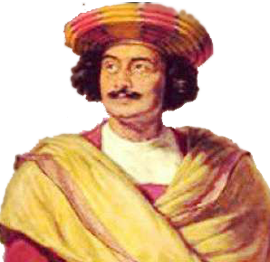
NCC (National CADET CORPS)
Introduction:
The National Cadet Corps is the Indian military cadet corps with its headquarters in New Delhi. It is open to school and college students on voluntary basis. The National Cadet Corps (NCC) in India is a voluntary organization which recruits cadets from high schools, colleges and universities all over India. The cadets are given basic military training in small arms and parades. The officers and cadets have no liability for active military service once they complete their course but are given preference over normal candidates during selections based on their achievements in the corps.
Aim of NCC:
The ‘Aims’ of the NCC laid out in 1988 have stood the test of time and continue to meet the requirements expected of it in the current socio-economic scenario of the country. The NCC aims at developing character, comradeship, discipline, a secular outlook, the spirit of adventure and ideals of selfless service amongst young citizens. Further, it aims at creating a pool of organized, trained and motivated youth with leadership qualities in all walks of life who will serve the Nation regardless of which career they choose. Needless to say, the NCC also provides an environment conducive to motivating young Indians to join the armed forces.
MOTTO of NCC:The need for having motto for the Corps was discussed in the 11th Central Advisory Committee (CAC) meeting held on August 11, 1978. The final decision for the selection of “Unity and Discipline” as the motto for the NCC was taken at the 12th CAC meeting held on October 12, 1980.
NCC Flag:
In 1954, the existing tricolour flag was introduced. The three colours in the flag depict the three services of the Corps, red for the Army, deep blue for the Navy and light blue for the Air Force. The letters NCC and the NCC crest in gold in the middle of the flag encircled by a wreath of lotus, give the flag a colourful look and a distinct identity.
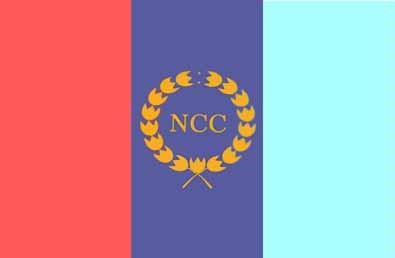
Pledge:
We the cadet of the national cadet corps, do solemnly pledge that we shall always uphold the unity of India. We resolve to be disciplined and responsible citizen of our nation. We shall undertake positive community service in the spirit of selflessness and concern for our fellow beings.
NCC at Our College:
Rammohan College houses an active NCC unit. NCC unit of Rammohan College was started in 2006. Every year, all 1st year students are eligible to apply for enrolment as NCC cadets. They attended camps in various places and Republic Day Parades. One of the students, Sharmishtha Roy, an ex-NCC member, attended a course, special NIC: Rajasthan, at Bada Bagh, Jaisalmer (Raj. Dte.) in 2014. The unit was discontinued between 2013 to 2022 for a variety of operational reasons.
The NCC unit of Rammohan College has been resumed since 2023 under the 2nd Bengal Girls Bn. It is now functioning smoothly. All students receive financial assistance from the Government of India through the 2nd Bengal Girls Bn. Presently, classes and training programs for the fulfilment of the course pertaining to NCC ‘B’ and ‘C’ certificates, including foot drill and command, weapon training, field craft, battle craft, map reading, etc held in every week under the supervision of PI staff of the 2nd Bengal Girls Bn. Cadets of the college NCC unit have to take part in the following camps organized by NCC authority (a) Combined Annual Training Camp (CATC) (b) Annual training Camp (ATC) (c) Republic Day Camp (RDC) (d) Thal Sainik Camp (TSC) (e) National Integration Camp (NIC) (f) Army Attachment Camp (AAC) (g) Trekking camp (h) Rock Climbing Camp (RCC). Rigorous physical training is imparted to the cadets with a view to increasing their physical endurance. During military training, cadets acquire first-hand knowledge about the use of various devices used by the Army. They are also trained in self-defence, map reading, first aid and shooting. Cultural programs are also held during training periods to improve the cultural and social outlook of the cadets. They also have to participate in various social activities to get the feeling of belonging to society.
Report of NCC Unit Activities of Rammohan College 2023-2024
NCC Office Visiting

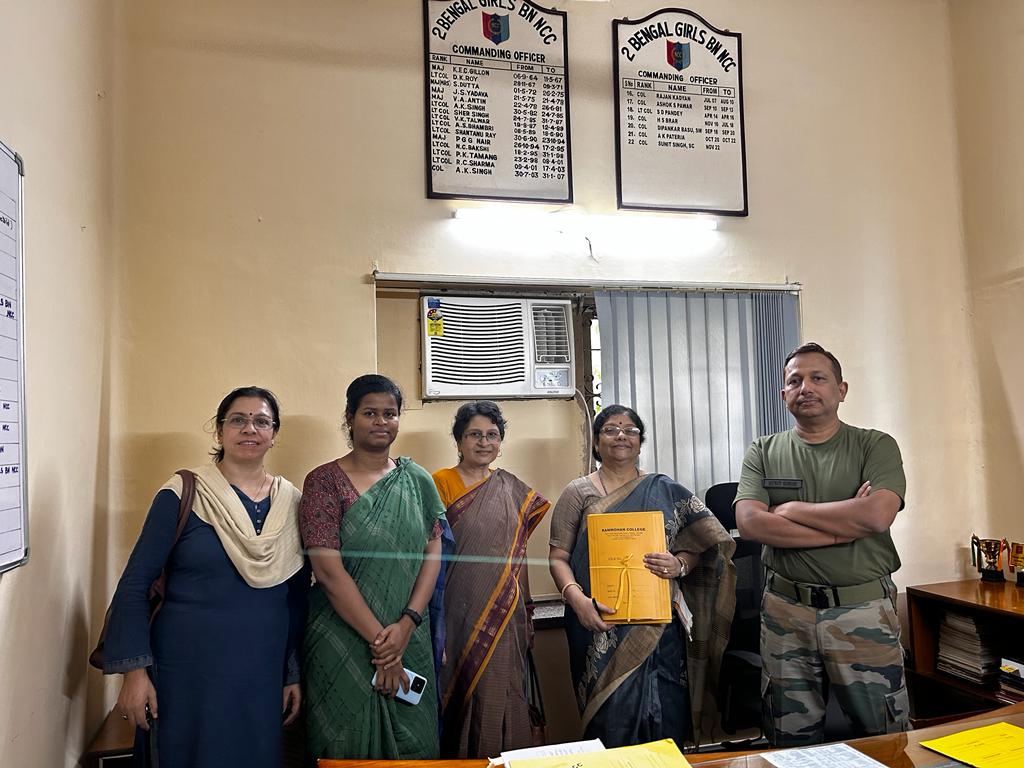
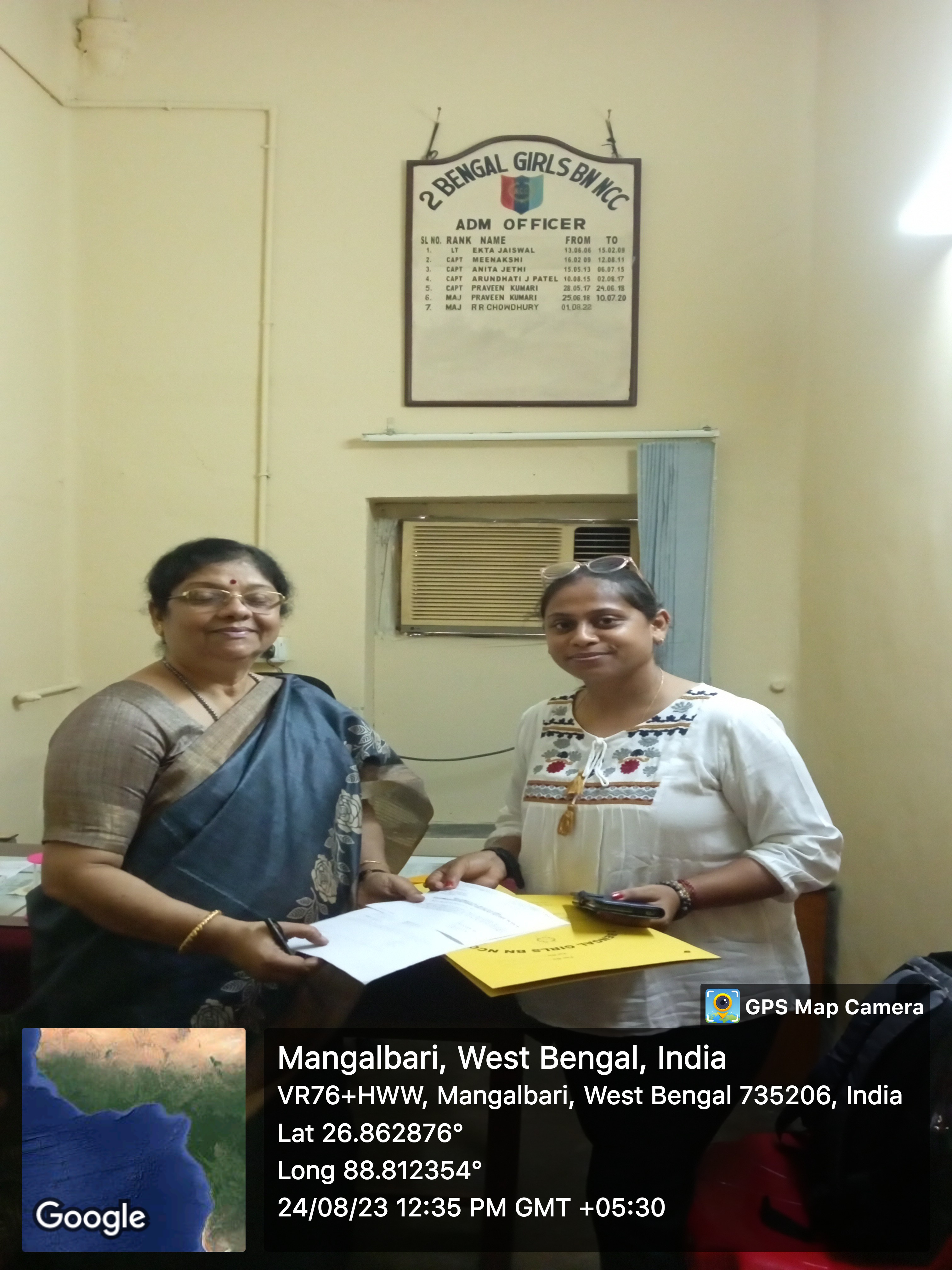
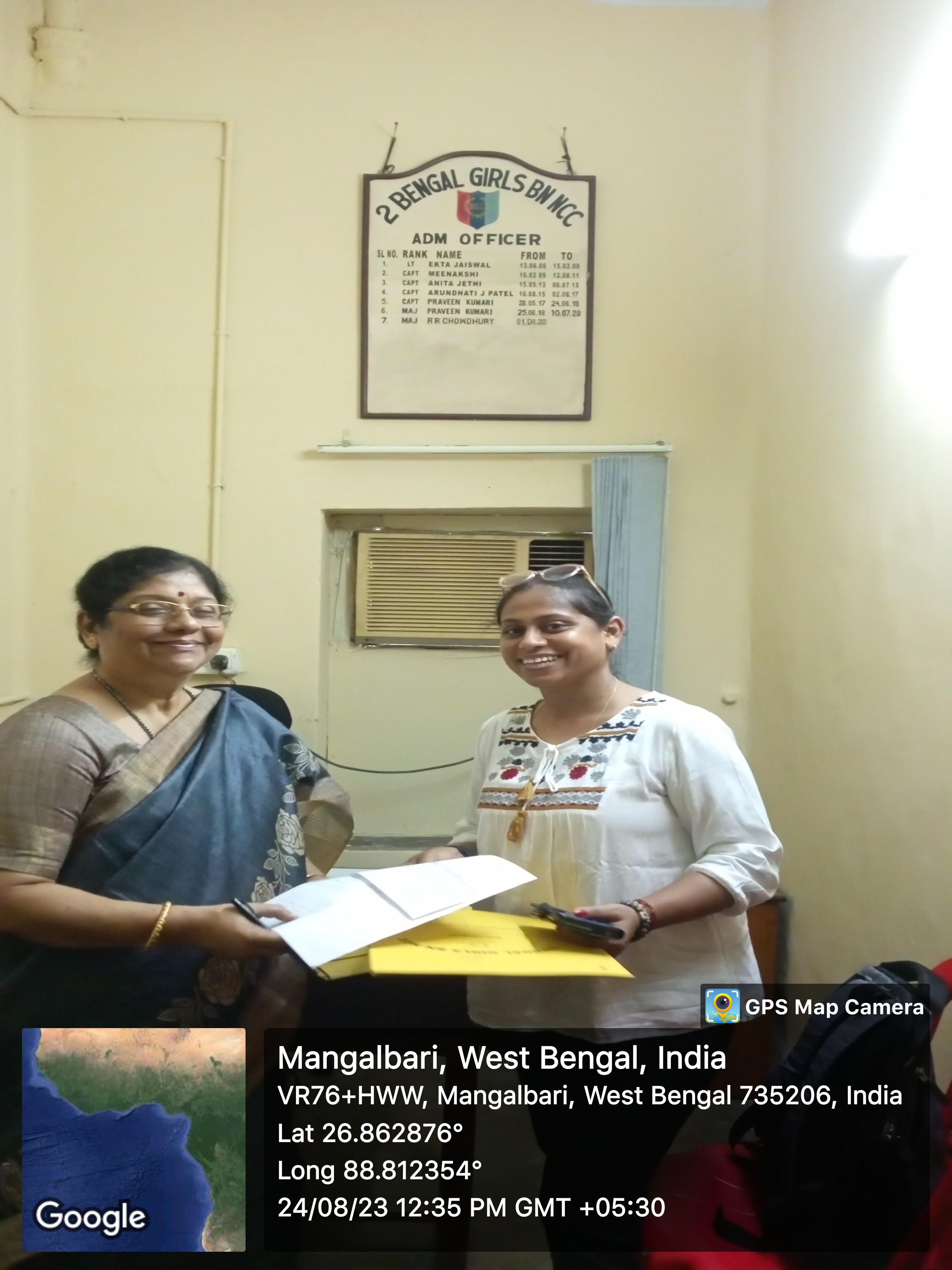
NCC Photo Gallery








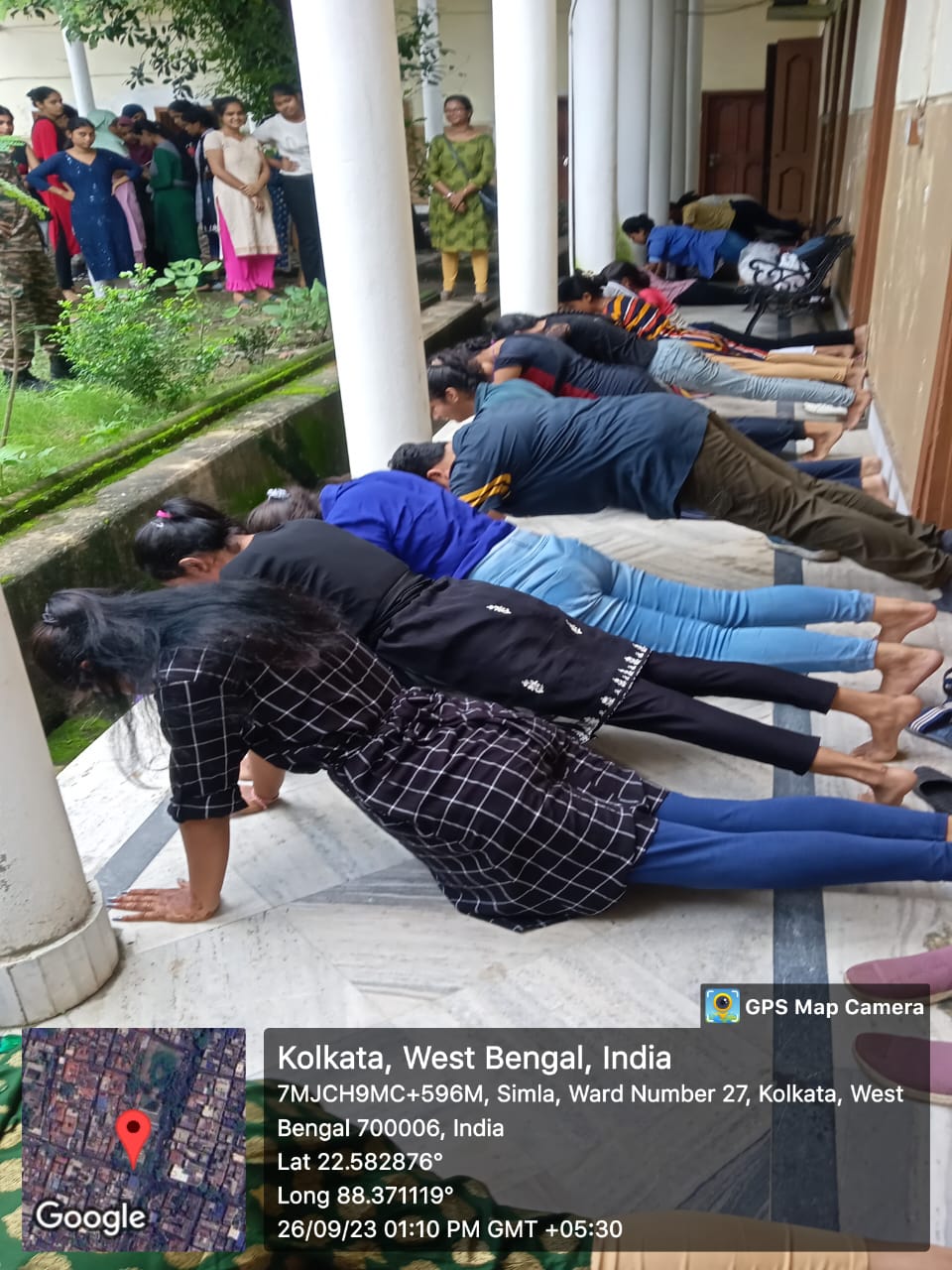
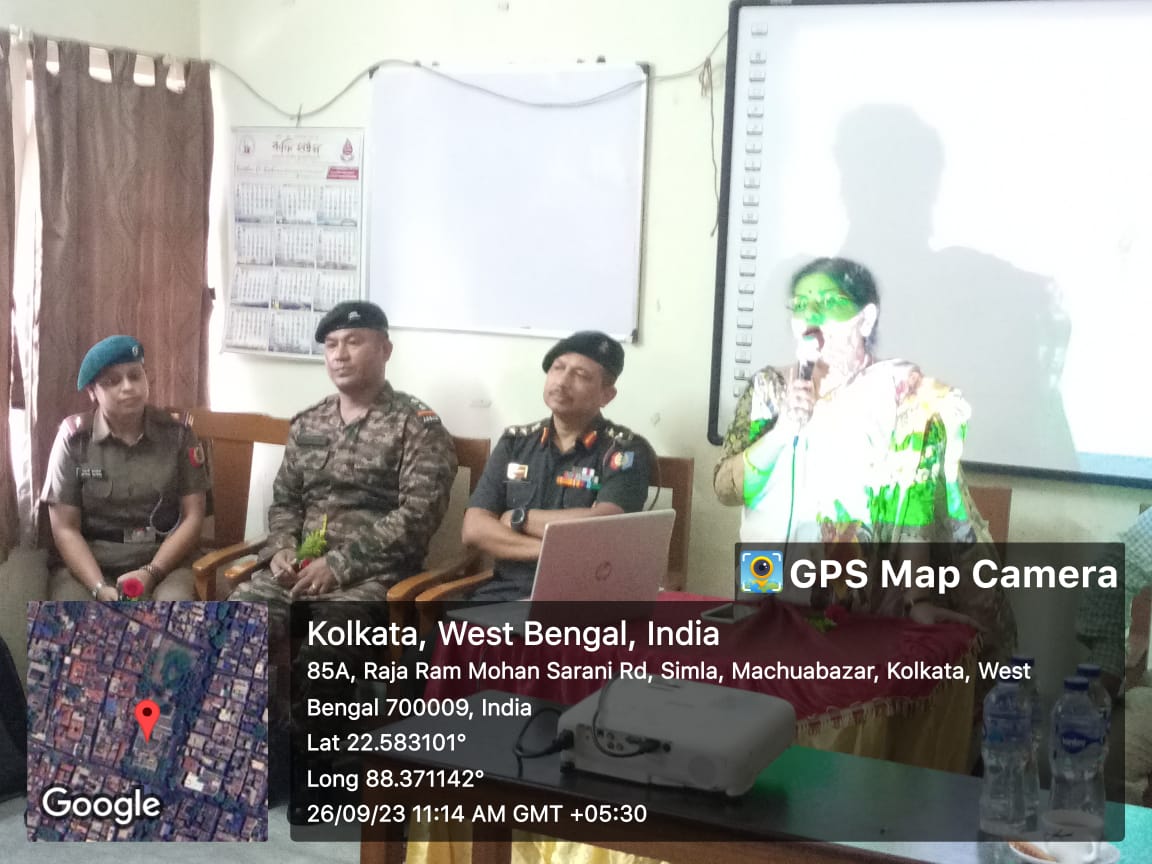
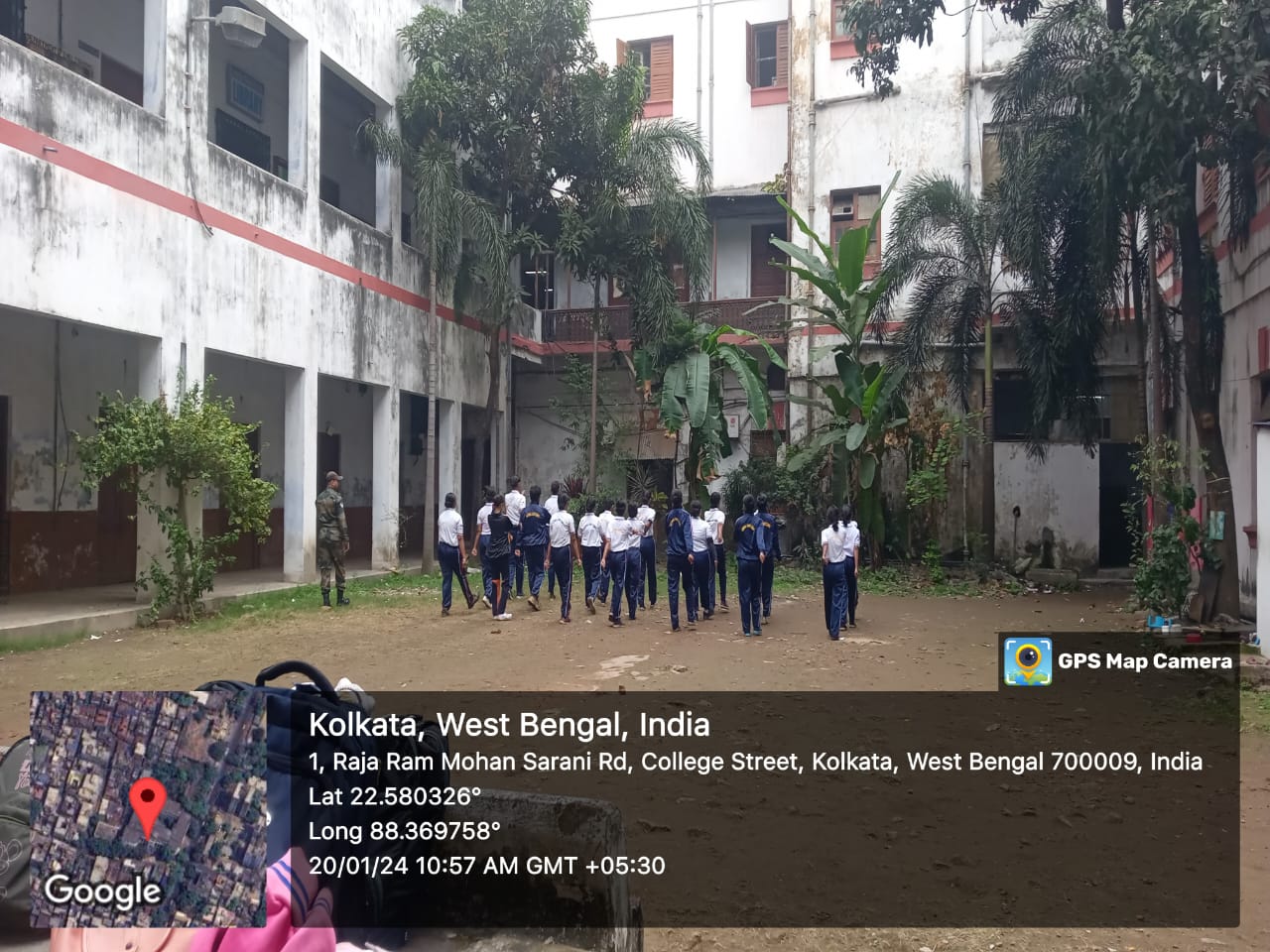
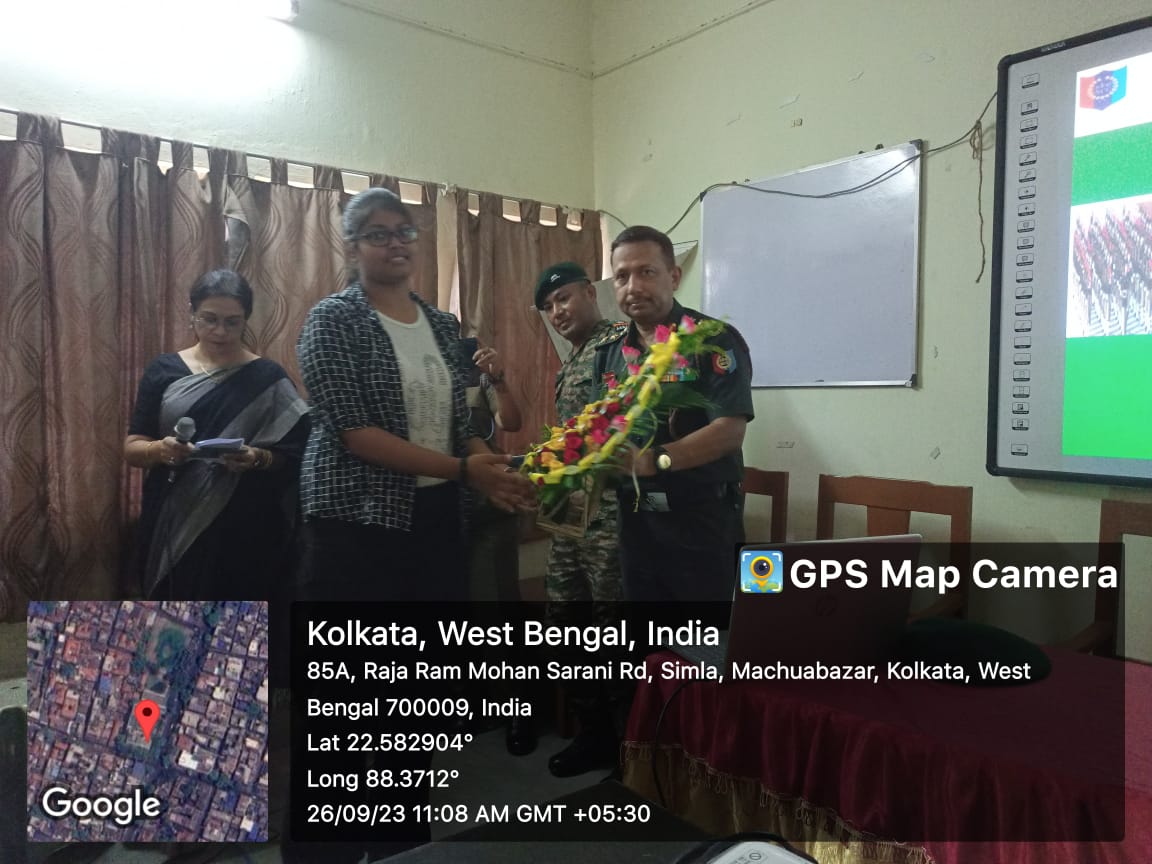
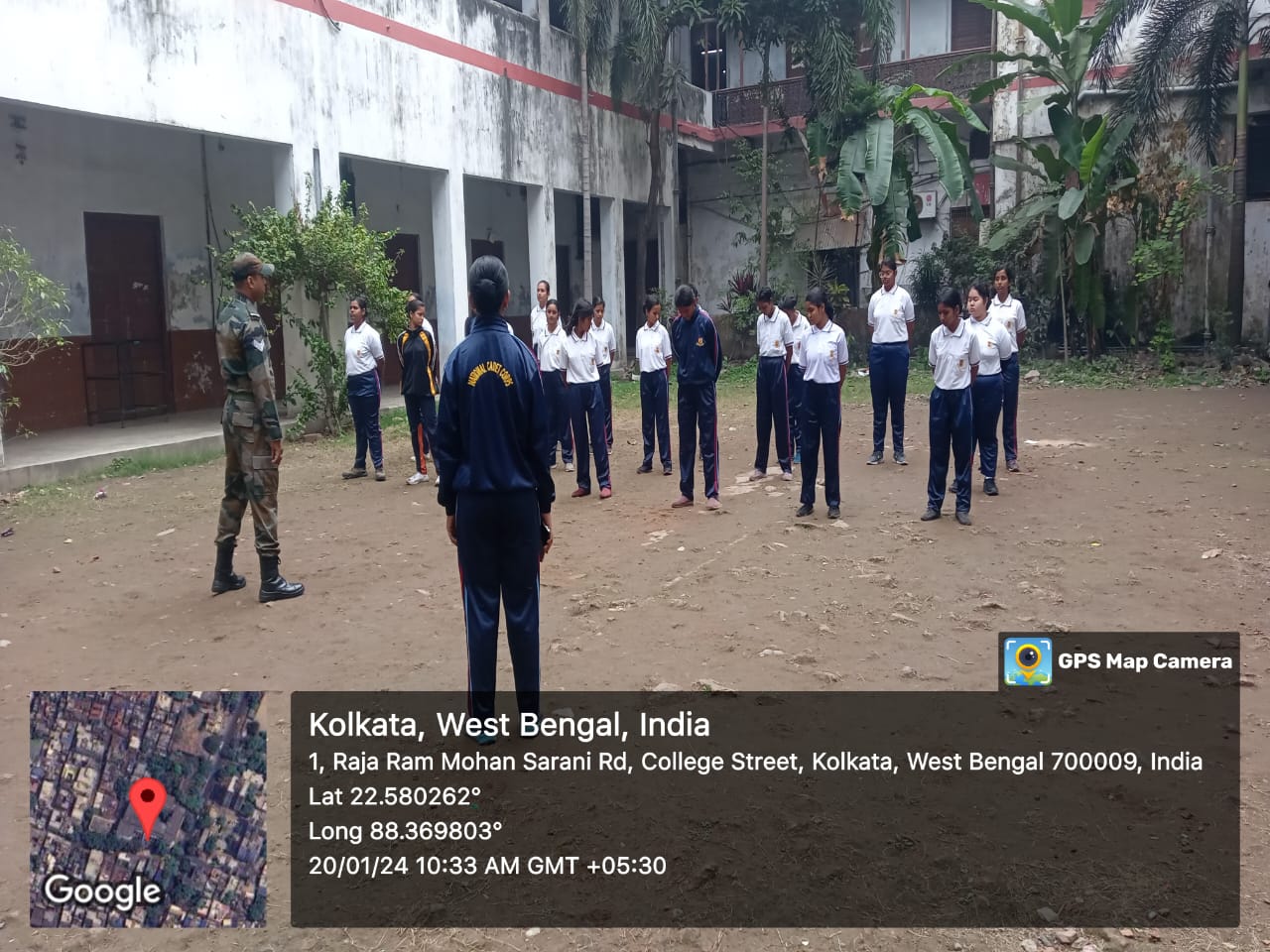
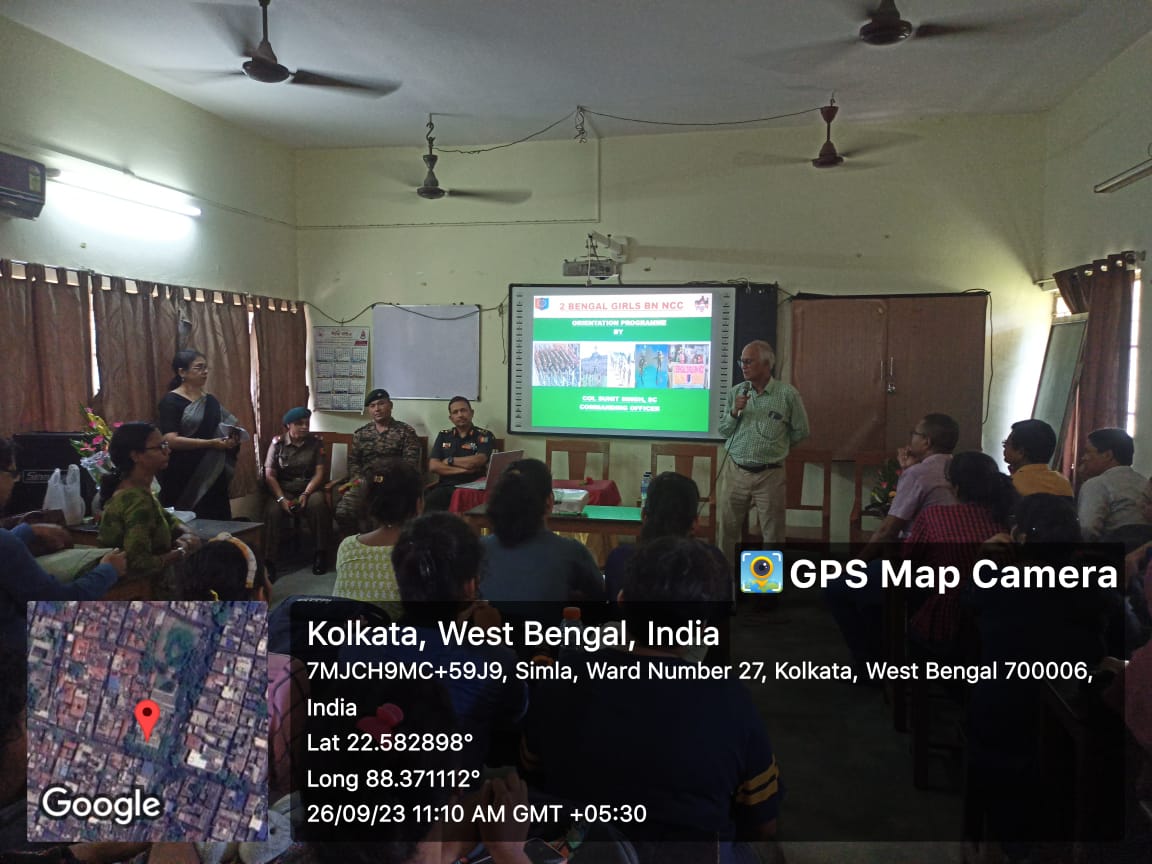
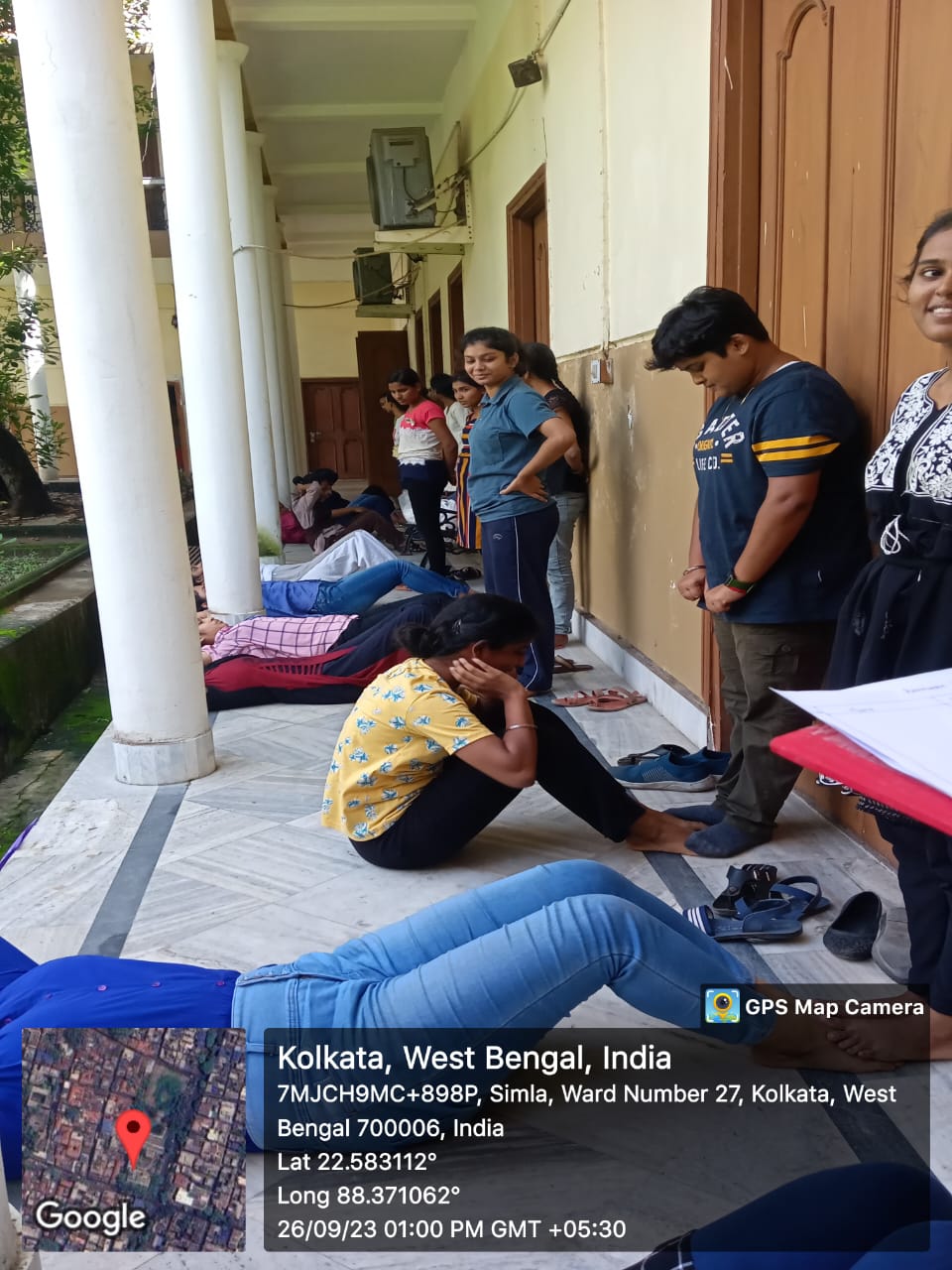
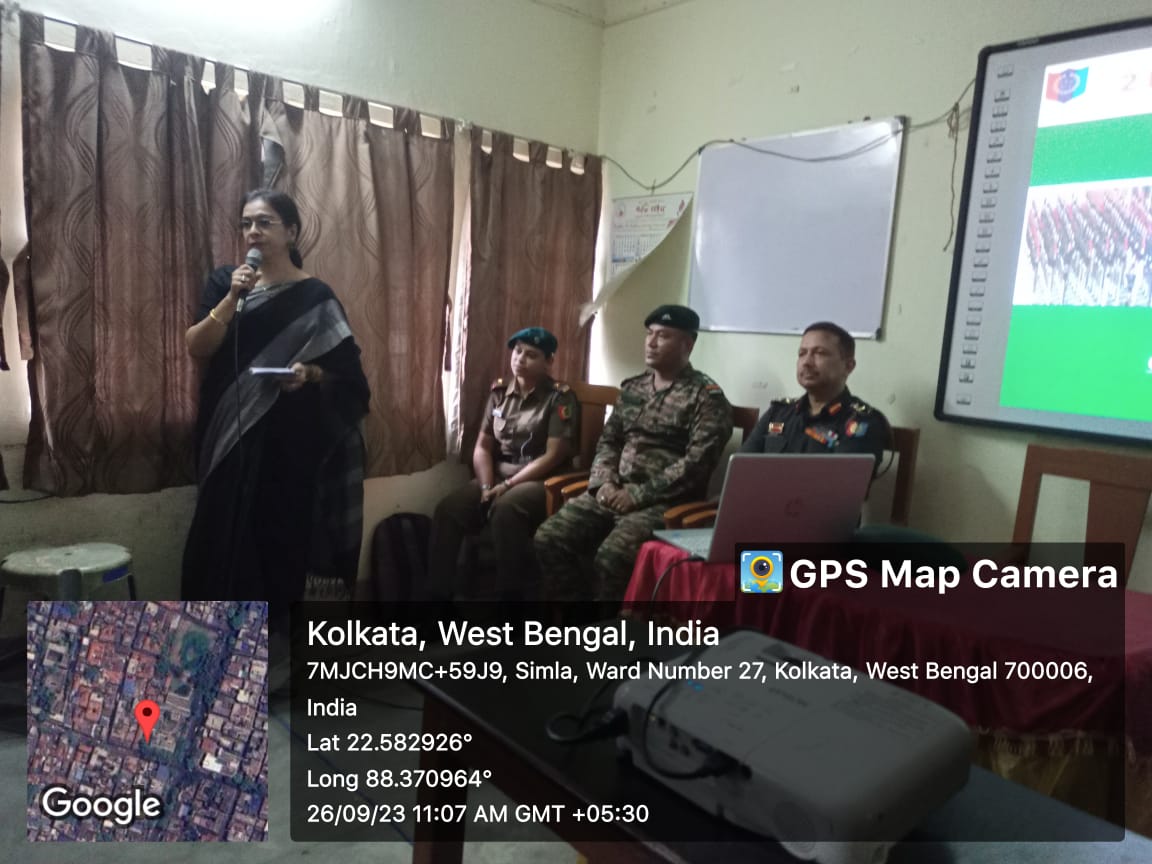
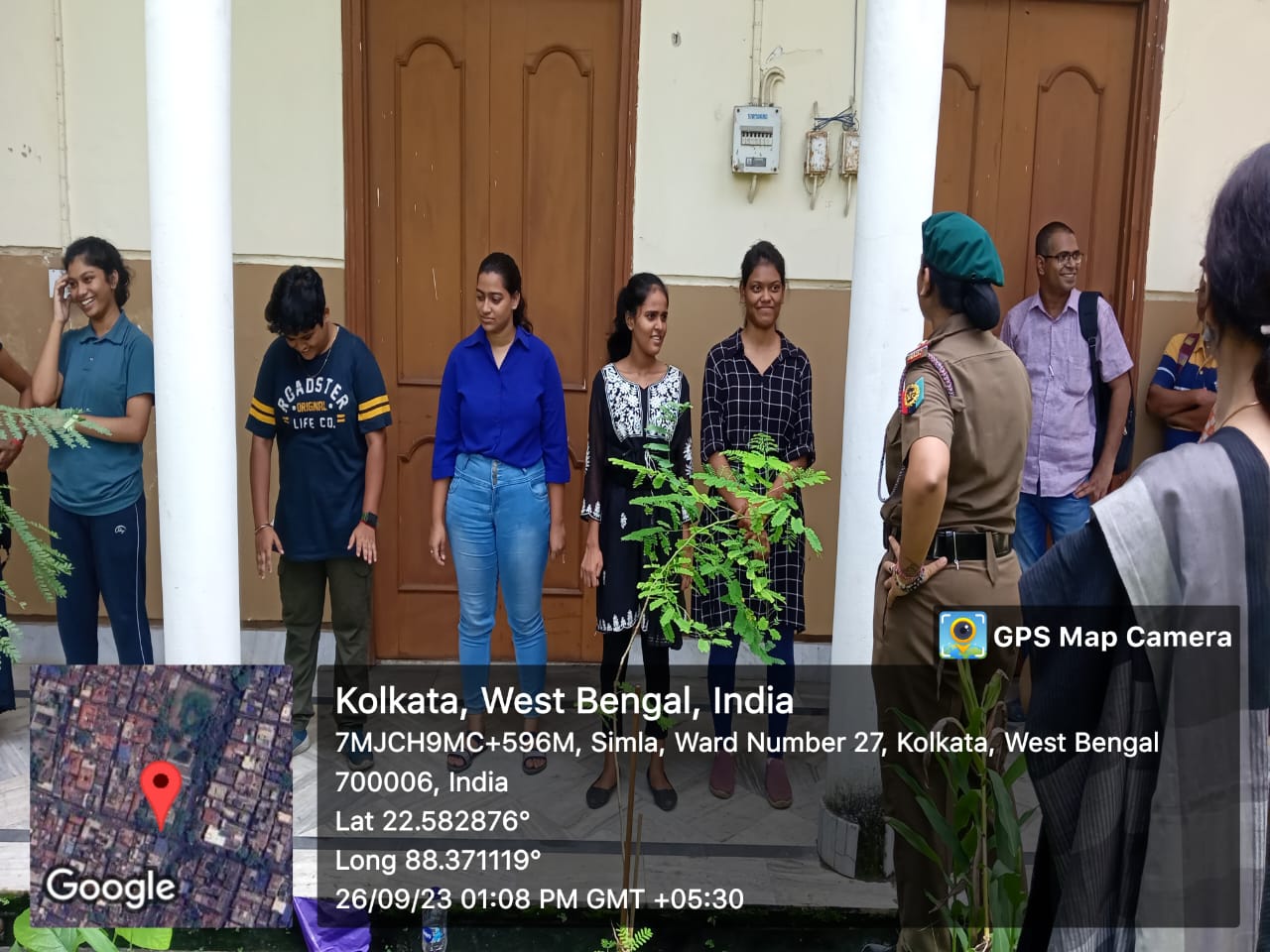
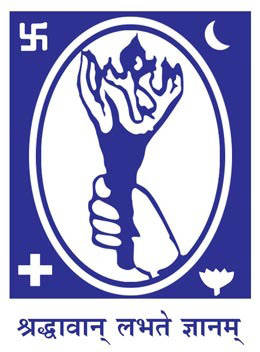
 ISO Certified -
ISO Certified - 